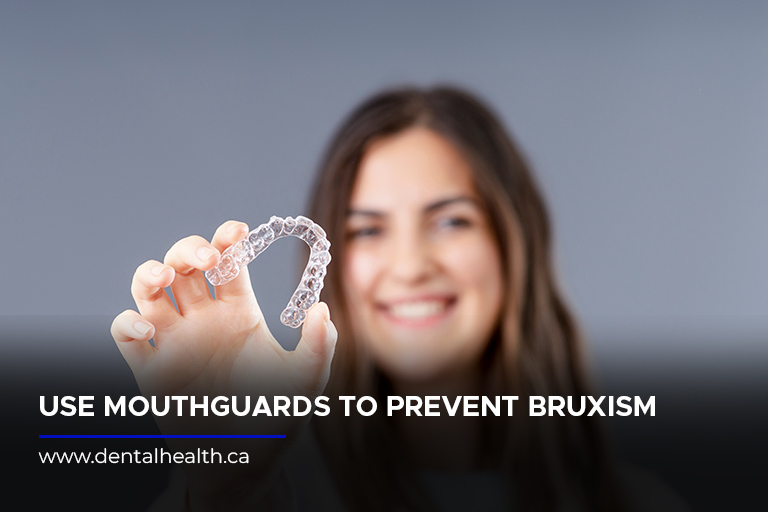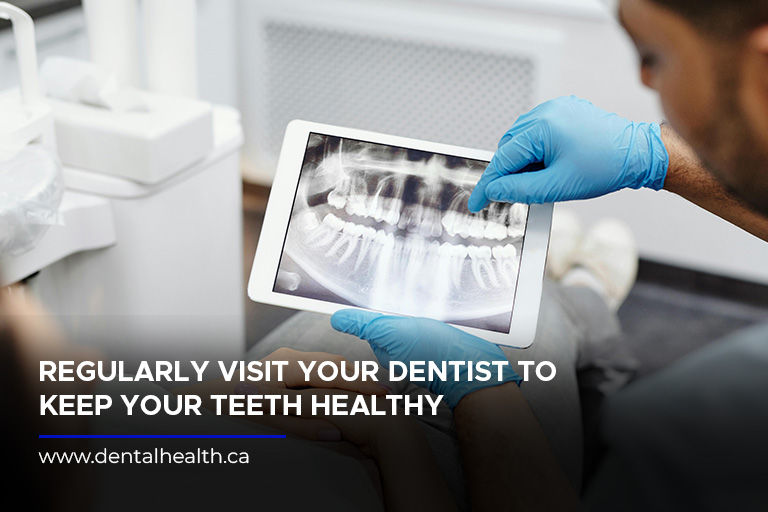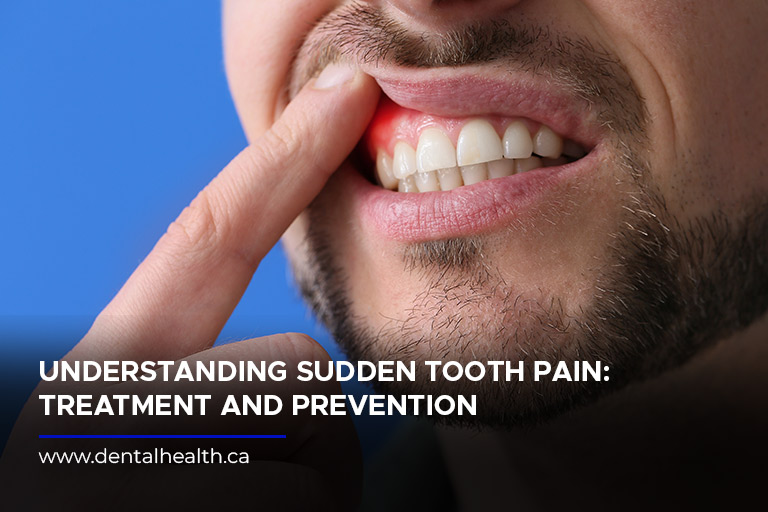Pain in the tooth can catch anyone off guard, transforming an ordinary day into one filled with discomfort and concern. While it’s easy to feel alarmed, understanding the possible reasons behind this pain is the first step towards finding relief. Our oral health is a window to our overall well-being, and sudden tooth pain can be a signal from our body, asking for attention.
Recognizing the causes of toothache is essential for timely and effective treatment. Whether it’s a minor issue that can be managed at home or a condition requiring professional care, identifying the root cause is crucial. By learning the common and less common reasons, let’s understand what sudden tooth pain is and knowing what to do if you get a sudden toothache.
Causes of Sudden Tooth Pain
- Tooth Decay
Decay is a primary cause of tooth pain, resulting from bacterial plaque that produces acids, eroding the tooth enamel and dentin. If untreated, decay can reach the inner pulp, causing intense pain.
- Gum Disease
Inflammation and infection of the gums, known as gingivitis or periodontitis, can lead to pain and tooth sensitivity. Gum disease can cause the gums to recede, exposing the roots and leading to discomfort.
- Cracked Tooth
A crack in a tooth can expose the sensitive inner layers to temperatures, pressure, and bacteria, causing sharp pain, especially when biting down or consuming hot or cold foods.
- Dental Abscess
An abscess is a pus-filled infection located at the tooth’s root or between the gum and a tooth. It is often accompanied by swelling, redness, and throbbing pain.
- Impacted Wisdom Teeth
If a tooth suddenly hurts, it may indicate an issue with an impacted wisdom tooth. Wisdom teeth that do not have enough room to emerge or grow properly can become impacted, causing pain, swelling, and infection.
- Tooth Eruption
In children and young adults, the eruption of new teeth (including wisdom teeth) can cause temporary discomfort and pain as the tooth breaks through the gum.
- Temperature Sensitivity
Exposure to extreme temperatures through food or beverages can cause sudden tooth sensitivity, resulting in sharp pain, especially if the enamel is worn down or if there’s gum recession.
- Bruxism
Grinding or clenching teeth, especially during sleep, can lead to tooth pain, headaches, and jaw discomfort. It often requires intervention to prevent further dental damage.
- Poor Dental Work
Improperly fitted crowns, bridges, or fillings can lead to pain and sensitivity. This may require adjustment or replacement by a dental professional.
Sudden Tooth Pain Treatment

- Professional Dental Care
Addressing decay, abscesses, or gum disease often involves fillings, root canal therapy, or scaling and root planing, crucial for restoring oral health.
- Pain Management
While over-the-counter pain relievers offer temporary relief, they are not a substitute for professional diagnosis and treatment of the underlying dental issue.
- Dental Restorations
Damaged or poorly executed dental work necessitates restorations like crowns or veneers to protect the tooth structure and alleviate discomfort effectively.
- Wisdom Tooth Extraction
Removing impacted or troublesome wisdom teeth is essential to prevent further unbearable tooth pain, infection, or misalignment of other teeth.
- Fluoride Treatments
Professional fluoride applications are beneficial for those with enamel erosion, enhancing enamel strength and decreasing sensitivity and discomfort.
- Mouth Guards
Custom-fitted mouth guards are an effective solution for individuals with bruxism, preventing tooth damage and mitigating pain from grinding or clenching.
- Antibiotics
Prescribed for bacterial infections causing tooth pain, antibiotics target and eradicate the infection, addressing the root cause of the discomfort.
- Warm Saltwater Rinse
Utilizing saltwater as a rinse can soothe inflamed gums and alleviate pain, acting as an effective, natural anti-inflammatory agent.
- Cold Compress
Applying a cold compress externally can significantly reduce swelling and provide numbing relief for acute dental pain or after dental surgery.
- Avoiding Triggers
Recognizing and steering clear of specific foods or temperatures that exacerbate tooth sensitivity is key to managing and preventing discomfort.
Prevention of Sudden Tooth Pain

- Regular Dental Check-ups
Routine dental visits allows you to know what causes random tooth pain, as well as detect and treat of oral health issues such as decay and gum disease. These check-ups can prevent problems from escalating, saving you from future pain and complicated treatments.
- Proper Oral Hygiene
Maintaining a daily routine of brushing, flossing, and using mouthwash is crucial in preventing plaque buildup. This regimen helps keep tooth decay and gum disease at bay, ensuring your oral health remains optimal.
- Dietary Choices
Consuming fewer sugary and acidic foods is essential for protecting tooth enamel from erosion. A diet low in harmful substances can significantly decrease the risk of cavities and enhance your overall dental health.
- Wearing Mouth Guards
For athletes and individuals who grind their teeth, mouth guards are a preventive measure against oral injuries and damage. These devices safeguard against cracks, chips, and other dental issues that can cause significant pain.
- Avoiding Hard Foods
Steering clear of hard or sticky foods can prevent tooth fractures and damage to dental work. This precaution helps maintain the integrity of your teeth and avoid the discomfort associated with such damages.
- Fluoride Use
Fluoride strengthens tooth enamel and makes teeth more resistant to decay. Regular use of fluoride toothpaste and mouthwash is a straightforward measure to fortify your teeth and ward off cavities.
- Smoking Cessation
Quitting smoking reduces the risk of gum disease, tooth loss, and oral cancer. Non-smokers experience fewer dental problems and are less likely to suffer from severe tooth pain compared to smokers.
- Stress Management
Managing stress effectively can reduce the likelihood of teeth grinding, a common source of tooth and jaw pain. Techniques like exercise and meditation can alleviate stress and prevent its negative impact on your oral health.
- Proper Use of Teeth
Using teeth as tools can lead to chips and fractures. By avoiding habits such as opening packages with your teeth, you can prevent unnecessary damage and the subsequent pain that often follows.
- Hydration
Drinking plenty of water promotes saliva production, which naturally cleanses the mouth and combats bacteria. Adequate hydration is key in preventing dry mouth, decay, and infections, contributing to a healthier oral environment.
Understanding the potential causes of sudden tooth pain is pivotal in addressing the issue effectively and preventing future occurrences. While some causes require professional intervention, others can be managed with at-home care and lifestyle adjustments. Remember, timely action can prevent minor issues from escalating into major concerns.
If you’re experiencing sudden tooth pain, don’t hesitate to seek professional advice from our dentist in Beamsville. At Kingsway Family Dentistry, we’re committed to providing comprehensive dental care to address your concerns and promote optimal oral health. For personalized care and guidance, contact us at (905) 563-4001 to learn more about our services. Your dental health is our priority, and we’re here to ensure you receive the care you need to smile with confidence.

